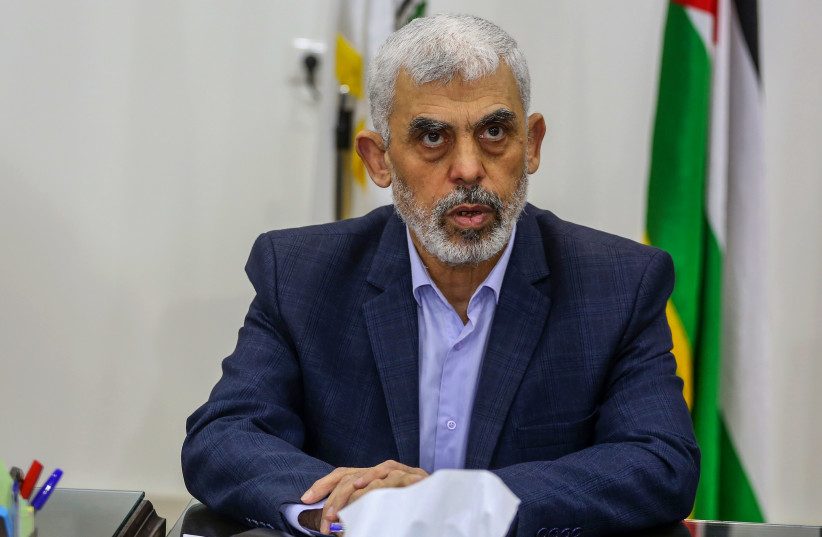Hamas may not cut a deal until the IDF stares its leadership in the eyes from “across the street,” or the equivalent of hiding inside a tunnel.
No one knows what is going on in Hamas leader Yahya Sinwar’s head, and it is also unclear whether there may be differences of opinion between him and his brother Muhammad on one side, and Gaza military chief Muhammad Deif – or Deif’s top deputy, Marwan Issa – on the other side.
What is clear so far is that there are differences of opinion between the Gaza leaders on the ground – the ones dictating the fate of the Israeli hostages – and Hamas’s supreme leadership outside of Gaza, who controls the group’s money and weapons resupply efforts.
Would making it to Khan Yunis make a difference?
Earlier on in the war, the hope was that by attacking northern Gaza first and southern Gaza later, perhaps the mere sight of the IDF’s dominance in northern Gaza would convince Hamas’s leadership to cut a deal to return all of the hostages – without the need to invade Khan Yunis.
This gambit worked only partially, however.

Hamas was brought down from its initial higher demands to be willing to return 81 Israeli hostages over a week, with no guarantees about a permanent ceasefire.
But that was as far as that gambit went.
What followed next was the hope that once the IDF invaded southern Gaza, getting closer to where Hamas’s top leadership allegedly fled from the north, a more complete hostage deal would be on the table.
Top Israeli officials have even started to speculate about potentially granting Hamas’s top leadership free passage out of Gaza in exchange for returning all of the hostages – a considerable change in the Israeli position, i.e., that all of them would need to be killed before the war would end.
After a week or so in Khan Yunis, top Israeli officials hoped that if they spent the month taking apart most of Hamas’s battalions there, Sinwar, Deif, and Issa would finally be ready for a deal.
And yet, Hamas made it clear over the last few days that it does not care what the IDF does to Khan Yunis and southern Gaza any more than it did to northern Gaza.
As long as the Hamas leadership holds the Israeli hostages and hears officials changing their tune – from immediately killing the terrorist group’s top officials to messages such as, “It may take months or years” – they feel they have the upper hand.
And, as long as the IDF does not have their exact locations, they feel like they might as well allow time, IDF and Palestinian civilian casualties, and global pressure wear down Israel’s will and its bargaining stance.
As long as they know that Israel will offer another deal, why should they agree to anything less than the best offer they can get?
If there can be any deal that both Hamas and Israel will agree to – something that top Israeli officials are not at all sure of – it will likely not come before Israel is proverbially knocking on the (tunnel blast) door, and Hamas realizes that its own time to stall has run out.
